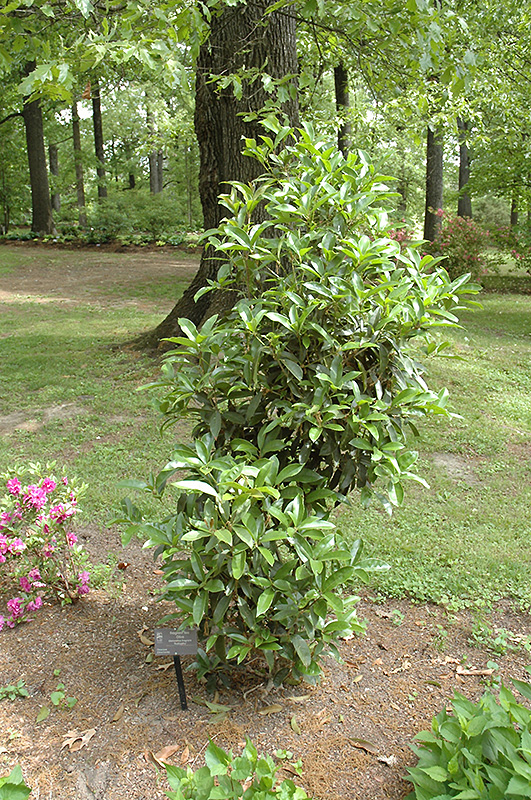Fudingzhu Fragrant Tea Olive
Osmanthus fragrans 'Fudingzhu'
Height: 12 feet
Spread: 8 feet
Sunlight:
![]()
![]()
Hardiness Zone: 7b
Other Names: Fragrant Olive, Sweet Olive
Description:
The profusely blooming and sweetly fragrant white flowers, and dense habit, makes this variety very appealing; flowers continuously from fall to spring in large clusters on the stems; a great garden or container plant that takes pruning well
Ornamental Features
Fudingzhu Fragrant Tea Olive is covered in stunning fragrant white trumpet-shaped flowers along the branches from early fall to early spring. It has attractive dark green foliage with light green undersides. The glossy oval leaves are highly ornamental and remain dark green throughout the winter. The smooth tan bark adds an interesting dimension to the landscape.
Landscape Attributes
Fudingzhu Fragrant Tea Olive is a dense multi-stemmed evergreen shrub with a shapely oval form. Its average texture blends into the landscape, but can be balanced by one or two finer or coarser trees or shrubs for an effective composition.
This is a relatively low maintenance shrub, and should only be pruned after flowering to avoid removing any of the current season's flowers. Deer don't particularly care for this plant and will usually leave it alone in favor of tastier treats. It has no significant negative characteristics.
Fudingzhu Fragrant Tea Olive is recommended for the following landscape applications;
- Accent
- Hedges/Screening
- General Garden Use
- Topiary
Planting & Growing
Fudingzhu Fragrant Tea Olive will grow to be about 12 feet tall at maturity, with a spread of 8 feet. It has a low canopy with a typical clearance of 1 foot from the ground, and is suitable for planting under power lines. It grows at a medium rate, and under ideal conditions can be expected to live for 40 years or more.
This shrub does best in full sun to partial shade. It does best in average to evenly moist conditions, but will not tolerate standing water. It may require supplemental watering during periods of drought or extended heat. It is not particular as to soil type or pH. It is highly tolerant of urban pollution and will even thrive in inner city environments. This is a selected variety of a species not originally from North America.

